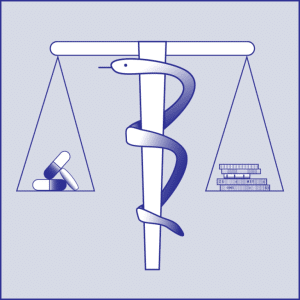Policy recommendations
Many different actors have a role to play in promoting human rights and vaccine equity.
What can stakeholders do to promote the accessibility, availability and affordability of Covid-19 vaccines and therapeutics? Our policy recommendations are aimed at key actors who can help ensure the realisation of the human right to health.
For companies developing/manufacturing Covid-19 medical products
- Follow the ‘Guidelines on responsible pharmaceutical behaviour in Covid-19’. Using these concrete and verifiable criteria, companies can publicise their commitments to international human rights standards and improve their public image.
- Reflect on the Fair Pharma Scorecard score given and use the guideline’s recommendations on how to improve it.
For governments
Use public funding to negotiate ‘fairer’ contracts. Governments have the power to negotiate conditions in their deals with vaccine and therapeutics providers. Governments can apply funding conditionalities to publicly funded developers of Covid-19 products. These terms could make government funding conditional on:
- The companies setting a fair price for the product.
- The companies committing to a responsible licensing mechanism such as WHO C-TAP or the MPP
- Data transparency in the event of public funding of Covid-19 vaccine/therapeutics clinical trials, licensing deals, costs and research.
Provide funding for international licensing mechanisms such as the Covid-19 Technology Access Pool (C-TAP), a World Health Organization initiative intended to facilitate the sharing of knowledge, intellectual property and know-how to fight Covid-19 and the Medicines Patent Pool (MPP), a UN-backed public health organisation that increases access to medicines through patent licences.
Support the waiving of intellectual property rights through other means, including through support of countries’ rights to use flexibilities contained in the World Trade Organization’s Trade-Related Aspects of Intellectual Property Rights (TRIPS) Agreement.
Create incentives for companies to adhere to human rights principles. Observance of our ‘guidelines for responsible pharmaceutical behaviour in Covid-19’ and scoring system could be included as a requirement in procurement contracts, for example.
For international organisations
Medicines Patent Pool (MPP) licences for public health have several key features that should be incorporated into any licensing: they are non-exclusive to encourage generic competition; transparent (the full texts are published on MPP’s website); contain waivers to data exclusivity; and aim at the widest possible geographical scope.
The World Health Organization should ensure that the Covid-19 Technology Access Pool (C-TAP) is adequately resourced, and should provide regular updates on its progress.
International efforts to prepare for the next pandemic should be supported, including negotiations on a treaty for pandemic preparedness.
For institutional investors
Implement and follow the United Nations Principles for Responsible Investment (UNPRI), involving a 3-part responsibility to respect human rights:
- Adopt policy commitments to respect internationally recognised human rights
- Conduct due diligence processes to identify potential human rights implications of vaccine developers’ activities
- Enable or provide access to a remedy: both procedural and substantive, through national judicial or grievance mechanisms, or through non-judicial means that are legitimate, equitable, & transparent in accordance with the UN Guiding Principles on Business & Human Rights.
Tie pharma CEO pay to equitable vaccine distribution: as a group of 65 asset managers have called for this action in January 2022.


